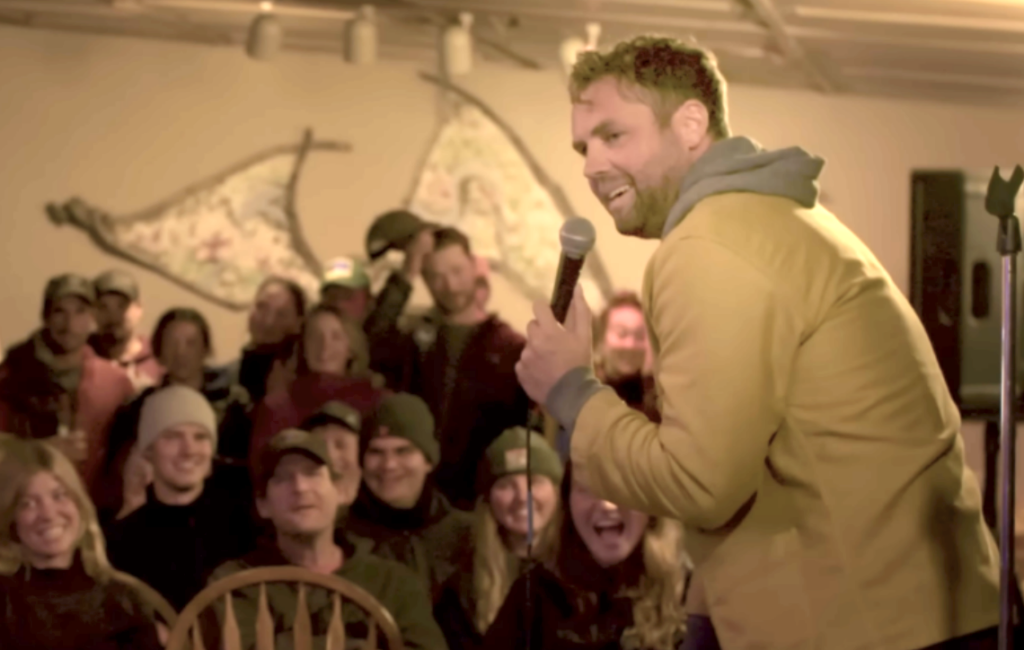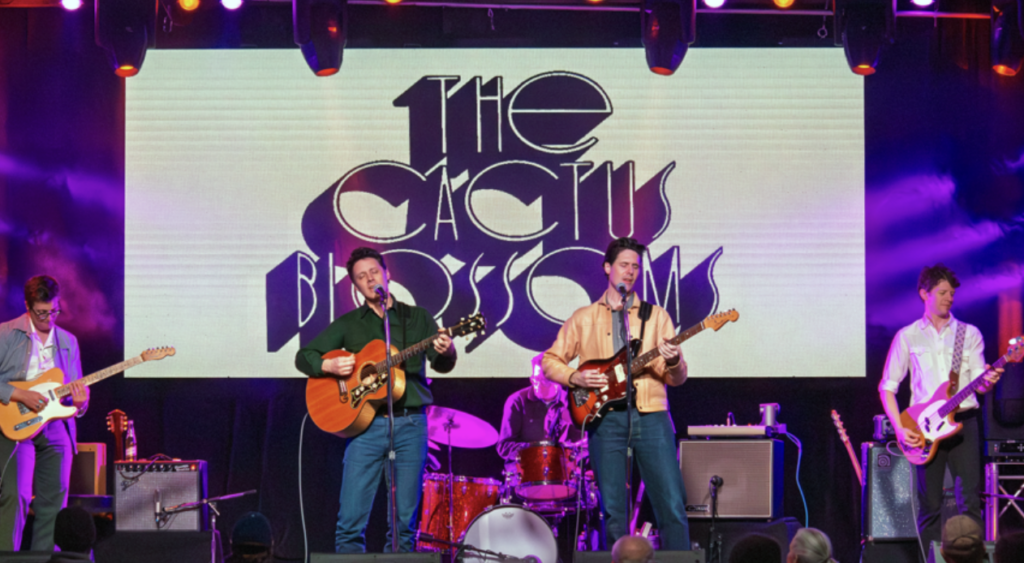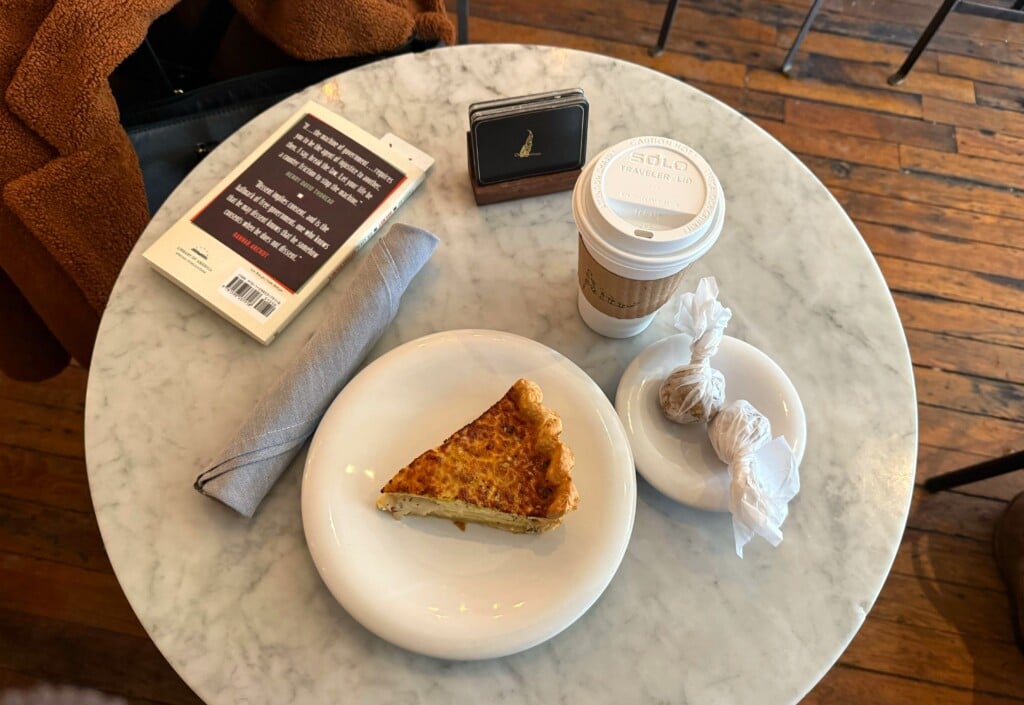Dawn of the Dead

Clayton Gavin and Randy Weaver have a lot in common: seething hatred for the government, advocating armed reprisal against law enforcement, espousing separatist rhetoric.
In a different world, they might have been conscientious comrades. They could have cursed Uncle Sam at Little League games, burned effigies at family barbecues, cleaned their rifles on the porch swing and made beautiful music together.
If only they could see eye to eye on that whole Black Panther versus Aryan Nations thing.
Perhaps it just wasn’t meant to be. Gavin is, after all, one half of Brooklyn’s militant rap duo Dead Prez, and Weaver was the militant patriarch of Ruby Ridge before the Feds laid bloody siege to his own private Idaho. And you know long-distance relationships never work.
As it stands, Gavin (aka Sticman) and wingman Mutulu Olugbala (aka M-1) do just fine damning The Man on their own. They form a potent tandem that comforts the afflicted and afflicts the comfortable with verbal Molotov cocktails that incite as much as they empower, songs that pair Big Brother visions with trunk-rattling beats and Black Power declarations with head-bobbing wordplay.
The duo’s incendiary 2000 debut, Let’s Get Free, blasted away the cobwebs left on political hip-hop after Public Enemy sank beneath the sea of Sisqo. But whereas Let’s Get Free put a boot in the ass of the “Thong Song,” Dead Prez struggled to match the album’s laser-guided missives on two subsequent “mix tape” releases.
That is until RBG: Revolutionary but Gangsta dropped last week. And not a moment too soon. Like knights in shining Kevlar, Gavin and Olugbala have ridden up on their black horses to save us all from the spastic crunk of Lil’ Jon and the social crux of the G-Dub administration. They swoop in to offer succinct commentary and salient criticism in an age when FCC chief Michael Powell hyperventilates whenever National Geographic Explorer broadcasts a segment on the Sageeboohbees tribe of Equatorial Guinea.
But not so fast.
No Dead Prez album is that easy to decipher. Sure, RBG is the closest the pair has come to getting back on the tracks of the underground railroad that Let’s Get Free helped lay. But it wouldn’t be a Dead Prez album if we weren’t up to our ears in contradictions.
Let’s Get Free was a seminal moment for socially contentious hip-hop. It introduced the world to a pair of rappers who could articulate Taoist philosophy and Socialist economics just as easily as they discussed popping caps and slanging ‘caine. One minute, Let’s Get Free talked of assassinating the president; the next it offered laughably earnest tips on dating (How about we start with a salad/A fresh bed of lettuce with croutons/Later we can play a game of chess on the futon) and dieting (Lentil soup is mental fruit/And ginger root is good for the youths). Both “Mind Sex” and “Be Healthy” were commendable, if curious, promotions of physical and mental health, but they paled beside withering tracks that sparked what has become a principal criticism of Dead Prez.
Namely, that they’re racist.
It’s a charge that might be ridiculous if it weren’t damned close to the truth. Dead Prez calls its approach pro-black, but it’s just shy of anti-white. Both albums roam the warning track of radical politics, but whereas Let’s Get Free railed against “Uncle Toms” and bristled with invective aimed at “crackers” and “white folks,” RBG has more developed insights into the dynamic between minority communities and blue-eyed white devils.
Some of us have brown eyes.
It’s difficult to gauge whether RBG exhibits a maturation of Dead Prez’s political views or if the barbed insights have just been dulled with time and success. Or whether Gavin and Olugbala have merely developed a more nuanced call to arms in an era when John Ashcroft has cameras in every shower head in America, just to make sure no one’s conducting any covert anti-American activities with his rubber ducky.
In fact, RBG attempts to mobilize the soldiers recruited by Let’s Get Free. “Walk Like a Warrior” sets the tone by calling for mental and physical discipline to prepare for civil war between the people in the streets and the people in the government seats. The liner notes lay out an “RBG Code” that includes dictums such as “no snitching,” “be organized,” “be productive” and “protect self, family and community at all times.” But although the group advocates self-defense in the Black Panther tradition, RBG takes the fight to The Man.
“I Have a Dream, Too” offers a twist on the art of the drive-by shooting by suggesting that people should be lighting up the police instead of each other. On “D.O.W.N.,” the you’re-either-with-us-or-against-us line is drawn: We hope for the best but prepare for the worst. Meanwhile, “Hell Yeah (Pimp the System)” advocates clogging the gears of the social machine by any means necessary — including identity theft and welfare fraud.
But “Hell Yeah” also is a prime example of Dead Prez’s hypocrisy. Gavin and Olugbala lambaste radio-friendly hip-hop on “Radio Freq,” shouting Turn off the radio! Turn off that bullshit!, yet they make a blatant push for radio (and video) airplay with a remix of “Hell Yeah” that features Jay-Z.
On RBG, the duo voices the desperation of substance abuse (“Fucked Up”) and the poverty cycle (“W-4”), yet they also have a weed-smoking track (“20”) on an album distributed by Sony. They empower people with self-responsibility only to undercut their rhetoric by failing to address accountability.
This isn’t Let’s Get Free. The messages are still powerful, but they’re also mixed. Dead Prez is still dangerous, but it’s also reckless. And RBG is good. But it could have been great.




